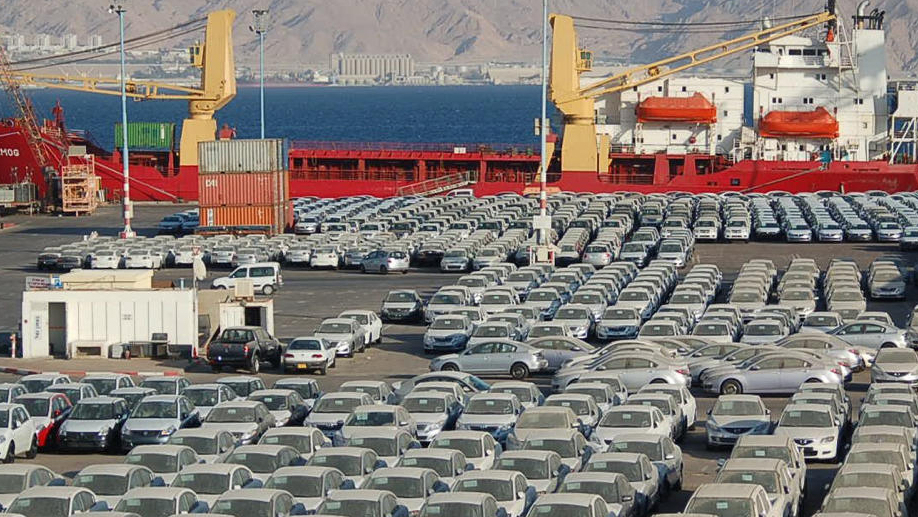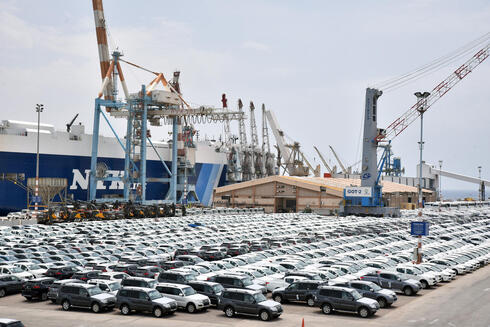
Shipping activity in Israel dropped dramatically amid Houthi attacks
The unloading activity moved to Haifa after the Houthi crisis in the Red Sea affected the port of Eilat, alongside the halt of activity in the port of Ashdod due to rockets from Gaza. There is also a sharp drop in transshipment activity in Israel's ports
The disruptions in maritime trade since the beginning of the attacks by the Houthi rebels in Yemen on vessels on their way to Israel cut the import of vehicles through the port of Eilat by about 60% in the fourth quarter of 2023, according to data on movements in the seaports published by the Shipping and Ports Authority for the months of October-December.
During this period, only 18,000 vehicles were unloaded at the Port of Eilat, which is operated by Nakash Brothers' Papo Shipping, compared to 70,600 vehicles that were unloaded there in the fourth quarter of 2022. The main activity of the Port of Eilat is the unloading of vehicles imported to Israel from the Far East.
Following the start of the war in Gaza after the Hamas attack on Israel on October 7, the Houthis in Yemen joined the campaign by launching surface-to-surface missiles at Israel and hitting vessels making their way to it with missiles and UAVs, or taking control of the ships in the area of the Bab al-Mandab Strait. This forced the international shipping companies to change the sailing routes to Israel and Europe by bypassing the African continent and entering the Mediterranean Sea through the Straits of Gibraltar, which extends the duration of the sailing to the seaports in Israel by about 20 days.
Related articles:
According to the data of the Shipping and Ports Authority, it is evident that the war in Gaza also affected the import of vehicles through the Ashdod port, due to the extensive and frequent rocket fire in this area at least in the first weeks of the fighting in the Gaza Strip. Thus, in the fourth quarter of 2023 only about 2,500 vehicles will be imported through the port compared to 43,100 vehicles that were imported through it in the fourth quarter of 2022 - a collapse of 94%. The explanation for the sharp change in the Ashdod port's scope of activity in the unloading and loading of vehicles is the decision of large importers to refrain from sending ships to Ashdod due to the rocket fire and their decision to anchor in ports located north of Tel Aviv. This situation benefited Haifa Port, which in the last quarter of 2023 unloaded about 27,000 vehicles at its docks compared to about 7,600 vehicles in the corresponding quarter of 2022.
In all of 2023, 344,700 vehicles will be imported to Israel through the sea ports compared to 342,600 vehicles in 2023. In annual segmentation, 43% of all vehicle imports in 2023 came through the Port of Eilat, 33% through the Port of Ashdod and 24% through the Port of Haifa.
The war in the south and the ongoing fighting on the northern border in the fourth quarter of 2023 also significantly reduced the scope of transshipments at Israeli seaports by about 70%. Transshipment means the unloading of goods from one ship and its loading into another ship (usually a smaller one) to complete a journey to a further destination. Between last October and December, approximately 11,8000 transshipment operations were carried out in the four seaports in Haifa and Ashdod, compared to 19,500 in the months of October - December 2022.
